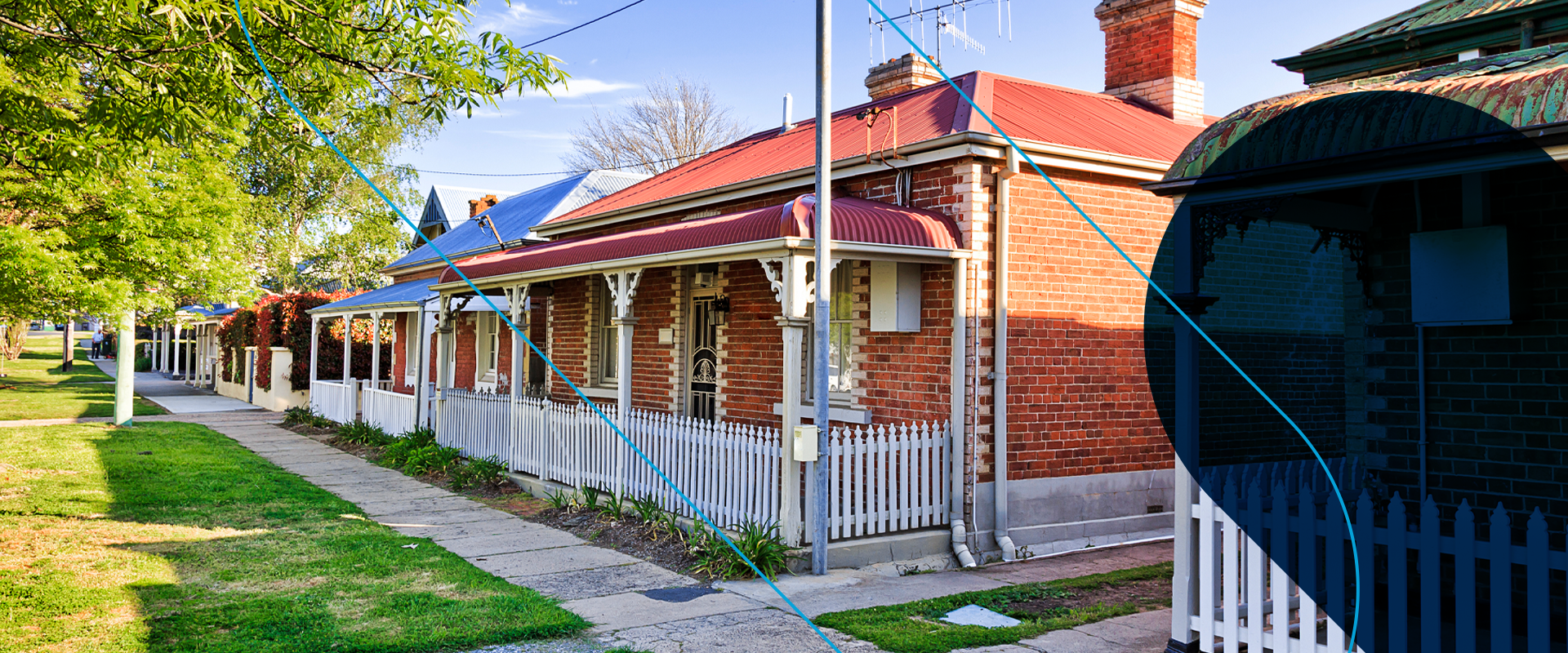How is your property performing?

![]() 7 MIN READ | By Danielle Clark | Updated on June 02, 2024
7 MIN READ | By Danielle Clark | Updated on June 02, 2024
It’s a question we love asking clients. Given the amount of wealth most of us have tied up in property, whether our own personal home or investment property/ies, you might think it’s a question that most people can easily enough answer.
In my experience, most have a good understanding of when it’s not going well (i.e. their property hasn’t appreciated in value over an extended period), but beyond that, the most common response is that a property is worth more than when they bought it, or the mortgage is going down whilst the property is going up. These are perfectly reasonable answers but are not true guides for how a property is fairing over an extended period, both relative to similar properties in the same suburb, city or even nationally.
But unless you’re an accountant or financially savvy, determining the performance of a property is not a straightforward exercise. It’s most certainly not as straight forward as comparing the performance of your superannuation funds investment performance, term deposit rates or even the individual performance of shares you own relative to the broader share market (all of which can be easily enough done online with user friendly comparison sites or online brokerages). No such tool exists for property (more on that later), and even the online price estimates provided by realestate.com.au and Domain can be wildly inaccurate and provide large price ranges. And even if you have an accurate understanding of what your property is worth and how much it has increased in value, how do you compare that performance relative to other properties over the same time period? Answer - it’s not easy.
So, it is no wonder, that most people have little understanding how their property is truly performing. And yet coming back to my earlier point, most people have a considerable amount (normally the majority) of their personal wealth tied up in property. Similarly, most people would not continue to invest their superannuation in a fund that continually underperformed, say one getting 1-2% per annum, whilst the market leading funds generate 8-9%.
An individual property is not an index fund of the property market
One of the most common myths about property, is that when you are buying a property you are somehow buying a share of the “property market”. It is a statement of the obvious, but you are instead buying an individual property. In the same way that when you buy a single company on the share market it’s performance can vary wildly (both for the positive and negative) from the broader market. The disparity in performance in individual properties over an extended period can be massive. Just last week I met with a client, as part of a Property Portfolio Review, that had purchased several investment properties, the first one of which was purchased a decade ago, all of which are now worth less than what they were purchased for. The investment performance on these properties is approximately -3% per annum compound, and like most property owners they are negatively geared so their true returns are likely more like -5%. Comparatively their primary place of residence, has performed exceptionally well over the same time, generating an annual return of just under 9%. Put another way they have lost approximately $400k on their investment properties and made more than $500k on their home (which also happens to be tax free). This example is at the extreme end, but we witness similar disparities on a daily basis and not just with off the plan apartment purchases (which yes no prizes for guessing the above example were off the plan apartments), but also with units and freestanding homes, albeit rarely with such a large discrepancy.
As part of our Property Advisory business, we offer Portfolio Reviews for clients, so if you would like us to assist, please do get in touch. We are also working on an online real time property score-card which we hope to be able to share with all LongView clients, in the coming months.
Knowledge is one thing, doing something is another.
So what should you do if you have a property that has consistently underperformed and is likely to continue to do so?
We have come to call the change in property investments, “changing trains”, selling an underperforming property (slow train or worse, one going backwards!) and re-investing the funds into a fast train (one likely to experience high growth). Given the levered nature of most property investments, even a modest change in investment performance can lead to substantial differences in outcome over a decade, even after factoring in transactions costs (see figure below, with an asset growing at 3% vs. one at 8%), normally in the many hundreds of thousands of dollars.

So all this sounds quite logical and straight forward enough, but have you ever heard of the disposition effect? It’s a physiological phenomenon where people are reluctant to sell an underperforming asset and more likely to sell an asset that has outperformed. Many of us can no doubt relate to personal situations where we have felt this or indeed done it ourselves.
It’s something we witness on a frequent basis whereby even when a client knows they have an underperforming property, in most cases they are reluctant to do anything about it, at least not for quite some time. The most common course of action, is the “wait and see” approach - “I’ll wait for property to go up in value” or to “I’ll wait for the property market to improve”. Again, this is perfectly understandable and relatable given both the financial stakes in property but also the common personal affiliation many people have with their property. Unfortunately however this is often detached from economic reality.
The likelihood of an underperforming property changing its fortunes or an overperforming property underperforming in future are severely unlikely. Why? Because unlike in shares where the fortunes of an individual company can change over time (in most cases they rarely do), whether via new management, a new product or some other change to their external environment, the fundamentals of what constitutes great property are much more fixed and less likely to change over time.
Time to take stock
Many of us use the end of the financial year as a forcing mechanism to take stock on our investments performance and to prepare for tax time (with assistance from relevant professionals). I would strongly encourage you to use this same time to review the investment performance of your own property and your overall property strategy. If we can assist you with this, we’d love to hear from you.
It may also be a good time to consider alternative investment options (warning plug coming up), including LongView’s Homes Investment Fund, directly investing alongside home-owners in a diversified portfolio of quality properties (aka family homes – think the 9% variety I referenced earlier), generating very strong returns in an asset class you’re already in – Residential Property. Or put another way investing into 250 quality homes, across Melbourne, Sydney, Brisbane and the Gold Coast.
More from...

Ensuring your property investment is secure: a reminder as the Financial Year nears its end
As we approach the end of financial year 2023-24, here are some essential matters concerning your valuable property investments.
Read More
Why are so many landlords selling? Is there a better way?
Increasing number of landlords selling their properties in Australia. Rising land taxes, interest rates and tenant headaches are the top reasons. Is there a better way to invest in property?
Read More
How to access equity in your home
There are many financial products on the market for accessing equity in your home, but it's important to find one that best meets your needs and life circumstances.
Read More.png?width=235&height=55&name=LV%20Logo-02%20(1).png)










.png?width=300&name=About%20(1).png)
.png?width=300&height=70&name=LV%20Logo-02%20(1).png)